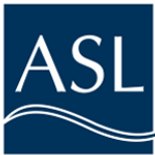ASL Environmental Sciences Inc. to provide Un-Cabled Bio-acoustic Sonar Instruments for Ocean Observatories Initiative (OOI)
 The Consortium for Ocean Leadership (OL) and the Woods Hole Oceanographic Institution (WHOI) announced ASL Environmental Sciences Inc. will provide Un-Cabled Bio-acoustic Sonar Instruments for the Ocean Observatories Initiative (OOI) Coastal and Global Scale Nodes (CGSN).
The Consortium for Ocean Leadership (OL) and the Woods Hole Oceanographic Institution (WHOI) announced ASL Environmental Sciences Inc. will provide Un-Cabled Bio-acoustic Sonar Instruments for the Ocean Observatories Initiative (OOI) Coastal and Global Scale Nodes (CGSN).
WHOI, an implementing organization on the OOI Program, awarded an Indefinite Quantity Contract with a maximum total value of up to $1,681,375 over 2.5 years to ASL Environmental Sciences Inc. (ASL). Under the terms of the contract, ASL will supply up to 16 instruments for the Coastal Scale Nodes and up to 10 instruments for the Global Scale Nodes.
ASL will supply its off-the-shelf Acoustic Zooplankton Fish Profiler (AZFP) instruments to meet the CGSN specific requirements. Four-frequency internally-powered, internally-recording AZFP echosounders with 38, 125, 200 and 455 kHz channels will be supplied for use on the Coastal Scale Node and operate for 7 months or longer on their own power. On the Global Scale nodes, each will have a dual set of AZFPs, each with 38, 70, 125 and 200 kHz channels (one will point up and the other will point down) to operate for up to 13 months without recovery. The first units are scheduled to be delivered in latter half of 2014.
The OOI, a project funded by the National Science Foundation (NSF), is planned as a networked infrastructure of science-driven sensor systems to measure the physical, chemical, geological and biological variables in the ocean and seafloor. As a fully integrated observatory, OOI will collect and disseminate data on coastal, regional and global scales. Through a unique cyberinfrastructure, OOI will make ocean observing data available to anyone with an internet connection. Greater knowledge of the ocean’s interrelated systems is vital for increased understanding of their effects on biodiversity, ocean and coastal ecosystems, environmental health, and climate.
The OOI Program is managed and coordinated by the OOI Program Office at the Consortium for Ocean Leadership in Washington, D.C., and is responsible for construction and initial operations of the OOI network. Five Implementing Organizations are responsible for construction and development of the overall program. (1) Woods Hole Oceanographic Institution and Scripps Institution of Oceanography are responsible for the Pioneer and Global Arrays, including their moorings and autonomous vehicles. (2) Oregon State University is responsible for the Endurance Array moorings and autonomous vehicles. (3)The University of Washington is responsible for cabled seafloor systems and moorings. (4) The University of California, San Diego, is implementing the cyberinfrastructure component. (5) Rutgers, the State University of New Jersey, is responsible for the education and public engagement software infrastructure.
About the Consortium for Ocean Leadership
The Consortium for Ocean Leadership is a Washington, D.C.-based nonprofit organization that represents 99 of the leading public and private ocean research and education institutions, aquaria and industry with the mission to advance research, education and sound ocean policy. The organization also manages ocean research and education programs in areas of scientific ocean drilling, ocean observing, ocean exploration, and ocean partnerships.
For more information on the OOI please visit www.oceanobservatories.org
About ASL Environmental Sciences
Founded in 1977, ASL Environmental Sciences is a well-established employee-owned company with experience in oceanographic, acoustic and ice research services. Based in Victoria, BC, Canada, the company’s 50 staff members provide clients with scientific consulting services and oceanographic instruments. In the early 1990’s, ASL started manufacturing battery-powered, upward-looking echosounders for studying ice and zooplankton. Since early the 2000’s, ASL has built a substantial number of self-powered bioacoustics sonars. Many have been deployed for year-long deployments in the Arctic Ocean. Reliability of the autonomous instrument deployments has been very high with >95% success rate based on % data recovery.
For more information on the AZFP instrument please contact:
Jan Buermans, PEngr
T: +1 (250) 656-0177×125, E: jan@aslenv.com
http://www.aslenv.com/AZFP.html
